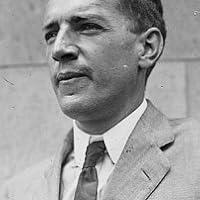
Upton Sinclair
Sull'autore
Upton Sinclair was an American writer and social reformer best known for his influential novel "The Jungle," published in 1906. This work exposed the unsanitary conditions in the meatpacking industry, leading to public outcry and significant changes in food safety laws. Sinclair's writing was characterized by its commitment to social justice and its critique of capitalism. He aimed to highlight the struggles of the working class, advocating for socialism and labor rights, which resonated with many readers during the early 20th century.
Over his prolific career, Sinclair published nearly 100 books, including novels, plays, and essays. His works often blended fiction with intense political commentary, making him a prominent figure in American literature. Despite facing criticism and backlash for his views, Sinclair's legacy continues to influence writers and activists who strive for social change. His dedication to revealing the harsh realities of life for the underprivileged remains relevant today, and his contributions to progressive thought have earned him a lasting place in literary history.